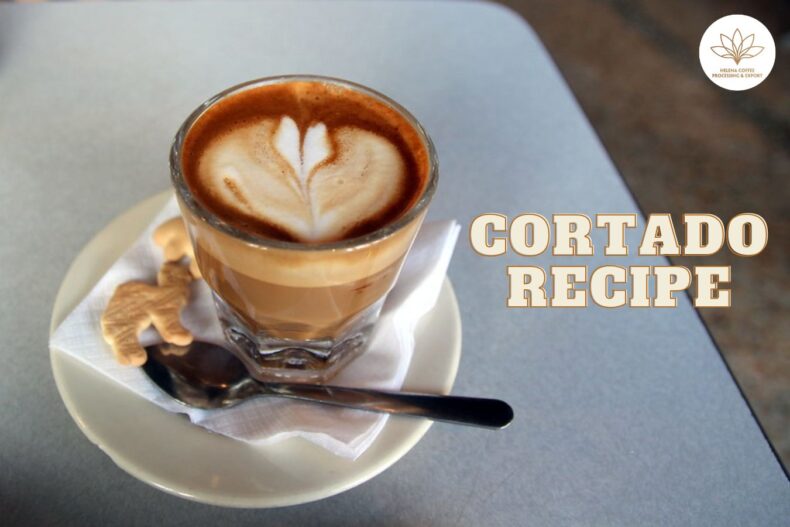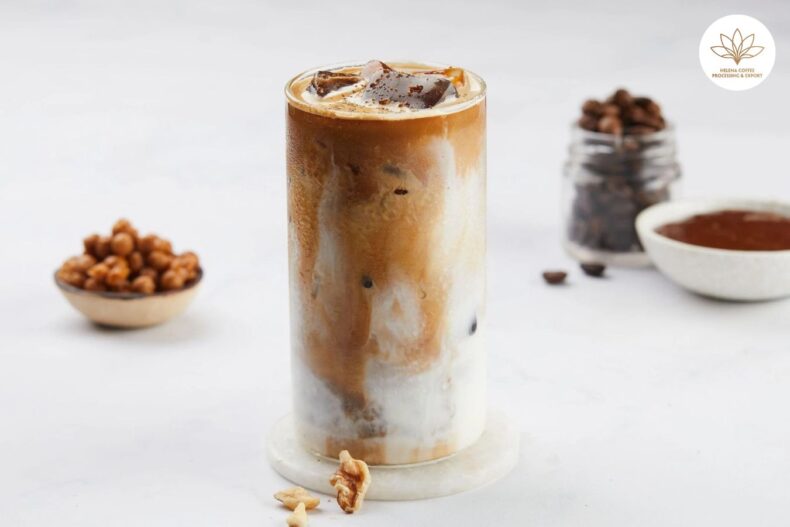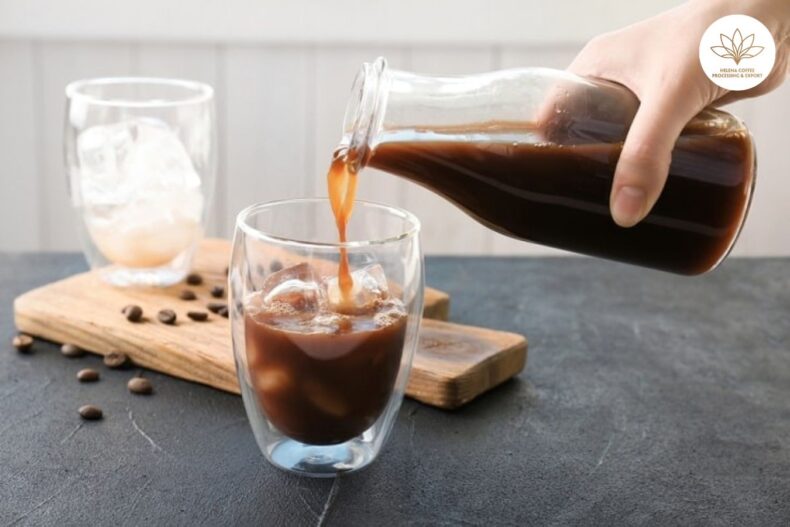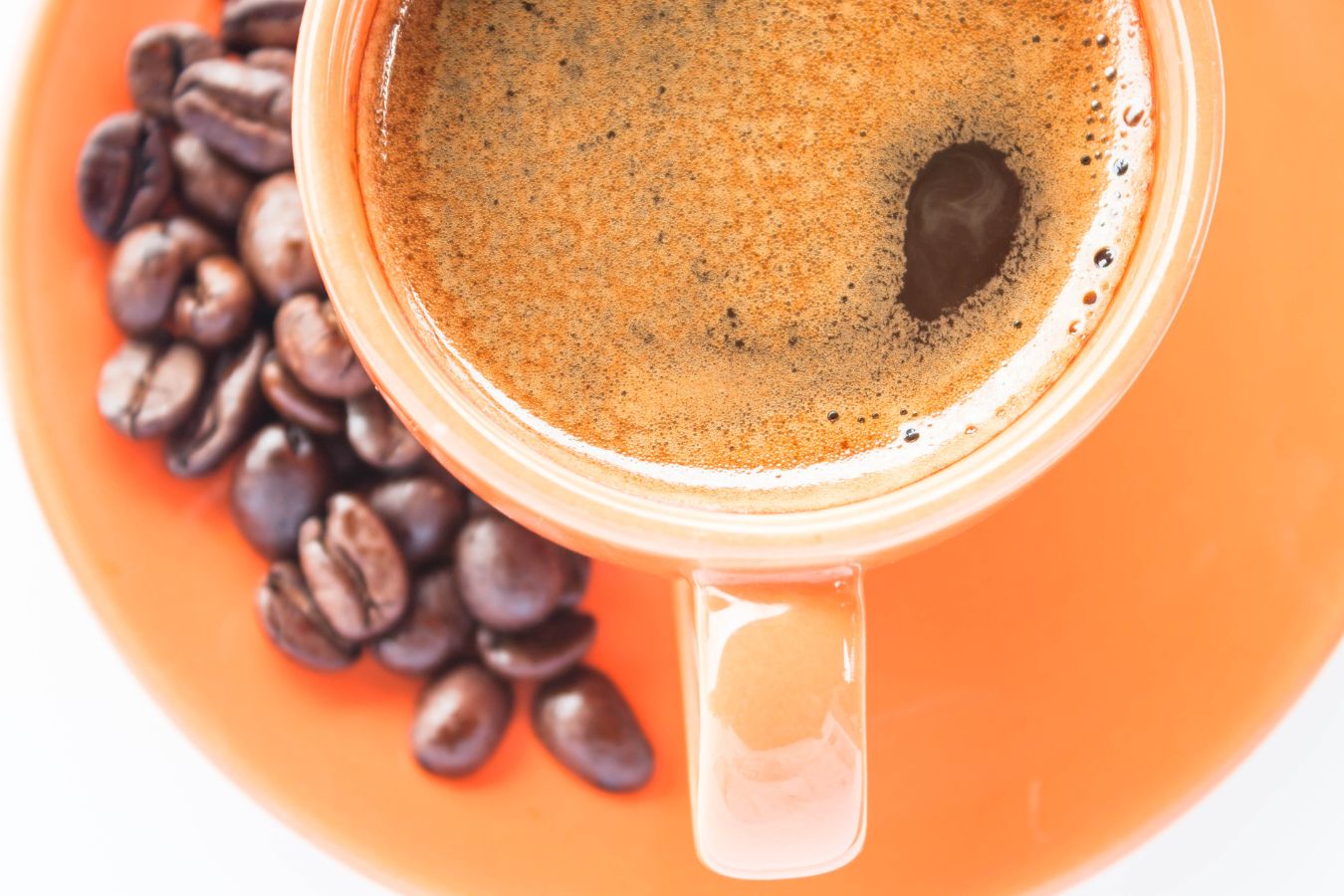
10 Ways to Make Coffee Less Bitter: No one wants a bad cup of coffee, but sometimes, homemade coffee can turn out bitter. Whether you just messed up your usual brew or don’t know what you did wrong, we’re here to help you out. Here are 10 ways to make your coffee less bitter.
Five Things to Change in Your Brew
Here are five things you can change with your next brew that might help make better coffee:
Choosing Your Coffee Beans
Good coffee starts with good beans! There are so many different varieties and flavors of coffee beans, and it matters which one you choose. Certain kinds of coffee beans lean towards more sweet and fruity and others lean towards the nutty and chocolatey side.
With roasts, lighter roasts tend to preserve more of the coffee beans natural flavors while dark roasts tend to have a more roasty and bitter taste.
Changing Coffee Grind Size
Over-extracted coffee leads to bitter coffee. If you are consistently getting bitter coffee, maybe it’s time to change your grind size. Your grind may be too small if it’s getting over-extracted and at the same time. Too large of a grind size leads to under-extraction and sour coffee.
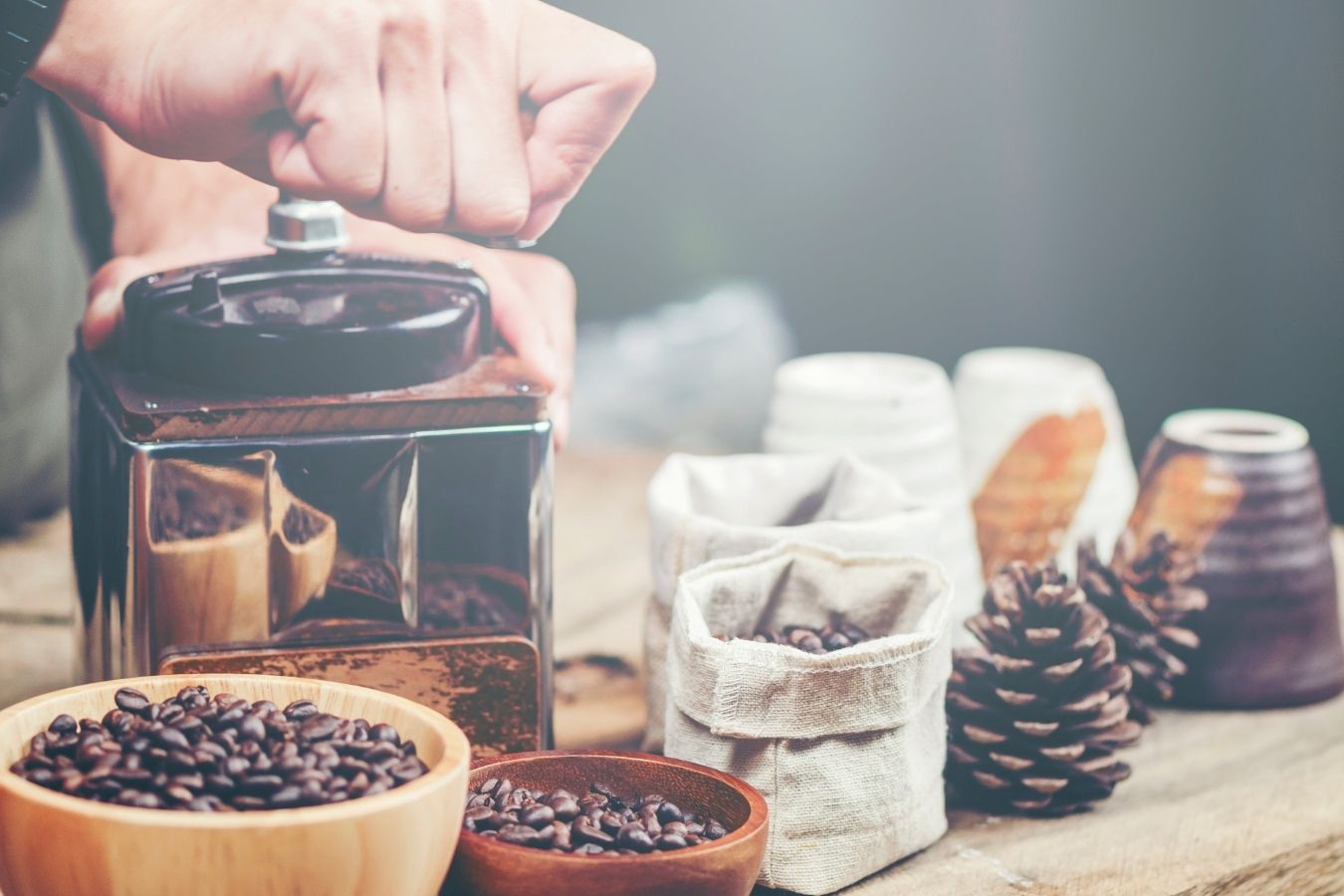
Changing Brewing Time
Following the same logic for coffee grind size, you might be brewing your coffee for too long if you’re consistently getting bitter coffee. Experiment and brew your coffee for less time until you’ve brewed a cup of coffee that is just the way you like it.
Check for Stale Beans
Stale coffee beans won’t taste as fresh or flavorful compared to freshly roasted beans. It may be imparting more bitter flavors too. Generally, coffee beans that have been roasted 3-4 weeks ago is stale. You want to buy coffee that was roasted 2 weeks ago, or any of these preservation methods.
Checking Coffee to Water Ratio
Too much water may make a very diluted coffee while too little will make a very strong and concentrated coffee. A very common ratio in coffee brewing is 1 part coffee to 15 parts water. Experiment with different ratios and measurements until you’ve gotten your desired taste.
Five Things to Add to Your Brew
Here are 5 things you can add to your brew that might help make it taste less bitter:
Add a Fat
Fats help counteract the bitterness in coffee! Adding milk, cream, ice cream, or butter even are good to reduce bitterness and round out other flavors in your cup of coffee.
Add Salt
Adding a small amount of salt to your coffee helps reduce the bitterness, and it also helps revive stale tasting coffee. Research has shown that salt is a better compound than sugar to reduce bitterness.
Add Sugar
That being said, sugar is also a great additive for reducing the amount of bitterness in your coffee. You’ll taste more of the pleasant sweetness rather than the bitterness.
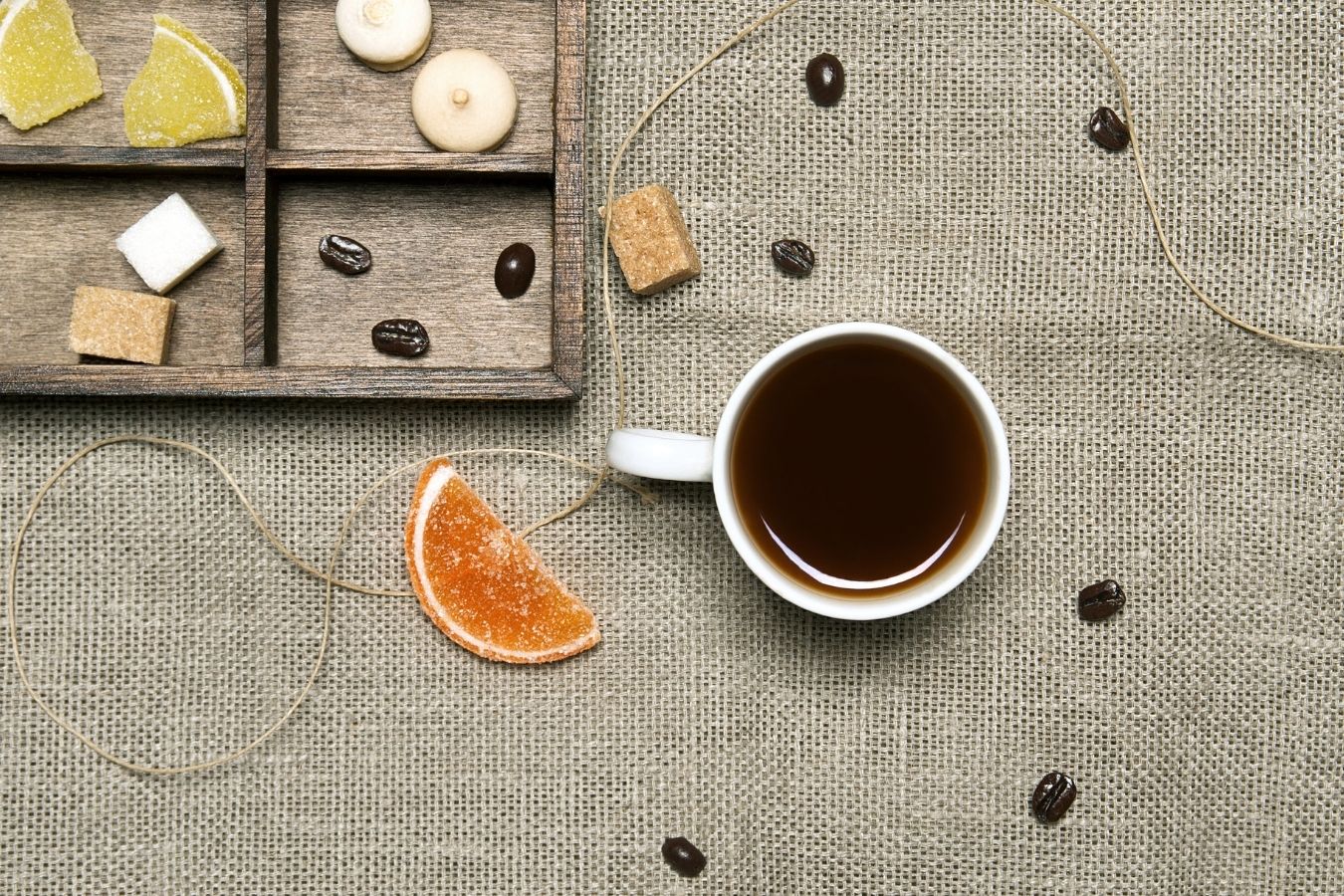
Add Cinnamon
Adding spices like cinnamon that are often paired with sweet desserts also help reduce bitterness in coffee. Your taste buds will associate the spice with something sweet and mentally trick you into thinking your coffee isn’t as bitter as you thought.
Add Citrus
Adding a little acid can also help counteract bitterness. If a squeeze of lemon is too much, you can put orange or lemon rind in the pot. If you have ever had coffee served with a wedge of citrus, this is probably the reason why.
Why does coffee taste bitter?
The two main reasons for the high levels of bitterness in coffee are:
1.Coffee roaster: roasting inferior, low-grade coffee too darkly
2.User-error: over-extracting the coffee during brewing
Coffee roaster
Most cheap, commercial coffees are roasted way too long which results in burning and thus bitterness. It’s exactly the same as when you toast a piece of bread for too long; the result is bitterness due to burning.
You’ll notice that coffee beans are often black or, at best, a very deep brown colour. Roasts such as French- or Italian-roast are roasted at such high temperatures that the beans become shiny due to the coffee lipids (oils) showing on the surface. If they were to be roasted any longer, they’d go up in flames.
This makes for an extremely bitter cup because you’re essentially drinking burned coffee.
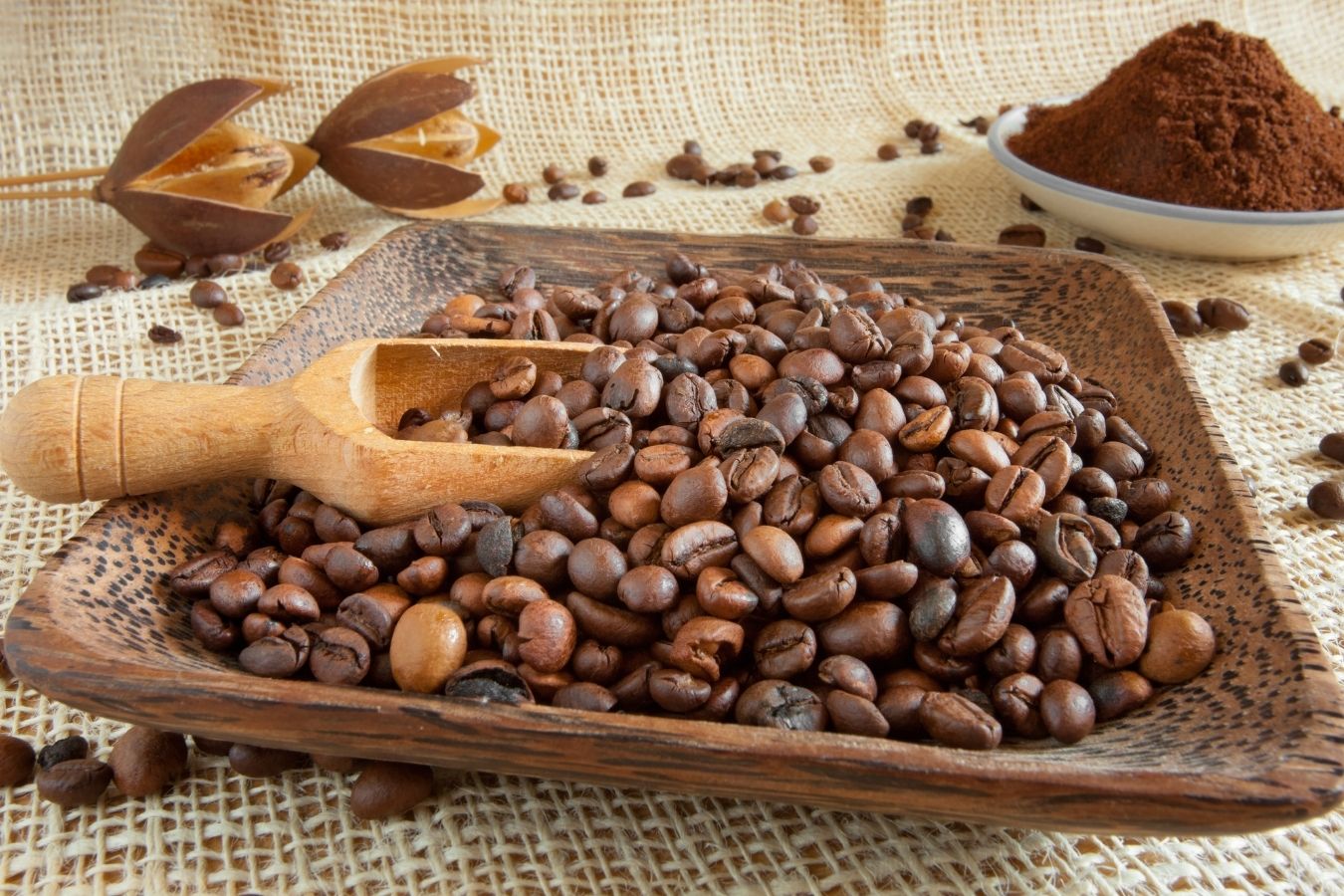
So why do roasters roast their coffee so dark? It’s all done in an effort to conceal the poor quality coffee beans. By roasting as dark as they do, they cover over the flaws of the inferior, low-grade coffee beans.
Most commercial packets of coffee are also a blend of as many as 40 different coffee beans from around the globe. Just as with wine, coffee has its own inherent flavours which change year upon year.
To create a blend that tastes the same year in, year out, the coffees are roasted darkly to account for the changes, meaning the flavour of the blend stays the same.
User-error
Another reason for bitterness can be down to user-error. Even with the best coffees beans in the world, you can still cause the resulting brew to be bitter.
When you brew coffee for too long, it becomes over-extracted and thus bitter. When you add hot water to coffee, the water acts as a solvent to the coffee. Firstly, the acids are extracted from the beans, then the sugars, and finally the bitter compounds.
You want to stop the brewing process when you’ve got to the tasty sugar comp ounds but not far enough that you’re into bitter territory. This is much the same as a piece of fruit. Did you know that coffee comes from fruit too?
When a piece of fruit hasn’t had a chance to ripen, you’ll notice that it’s sour and unpleasant to eat. If you leave the fruit to mature, it becomes sweeter and sweeter. That is when you want to eat it.
But when you leave a piece of fruit too long, what happens? The sweetness actually diminishes because it reached its peak. Although fruit doesn’t become bitter after reaching its sweetest point, coffee is much the same as fruit in that it reaches its best and then gradually gets worse. You want to consume it at its peak.
Which coffee is most bitter?
Darkly roasted coffee will always be more bitter than lightly roasted coffee due to the chemical process that takes place during roasting. The more coffee is roasted, the greater the build-up of quinic acids that turn into chlorogenic acid lactones and phenylindane bitter compounds.
The most bitter coffees will either have a high strength rating on the packet or be named full city roast, dark roast, Vienna roast, French roast, or Italian roast, so they’re the ones you want to avoid.
Good specialty coffee roasters seldom roast coffee darkly. The darker a coffee is roasted, the more you obscure its inherent flavours.
Specialty coffee roasters roast their coffees in such a way as to highlight the coffee’s beautiful flavours, and to show off its terroir – where the coffee came from.
Robusta has more bitterness than arabica
The two most common varieties of coffee beans are arabica and robusta. Arabica is superior in taste to robusta and therefore demands a higher price.
You’ll find robusta used in jars of instant and packets of cheap coffee. It’s also commonly found in coffee pods for automatic machines such as Nespresso or Dulce Gusto.
Roasted robusta coffee is a lot more bitter than the arabica variety. This is because it has higher concentrations of the bitter compounds chlorogenic acid lactones and phenylindanes.
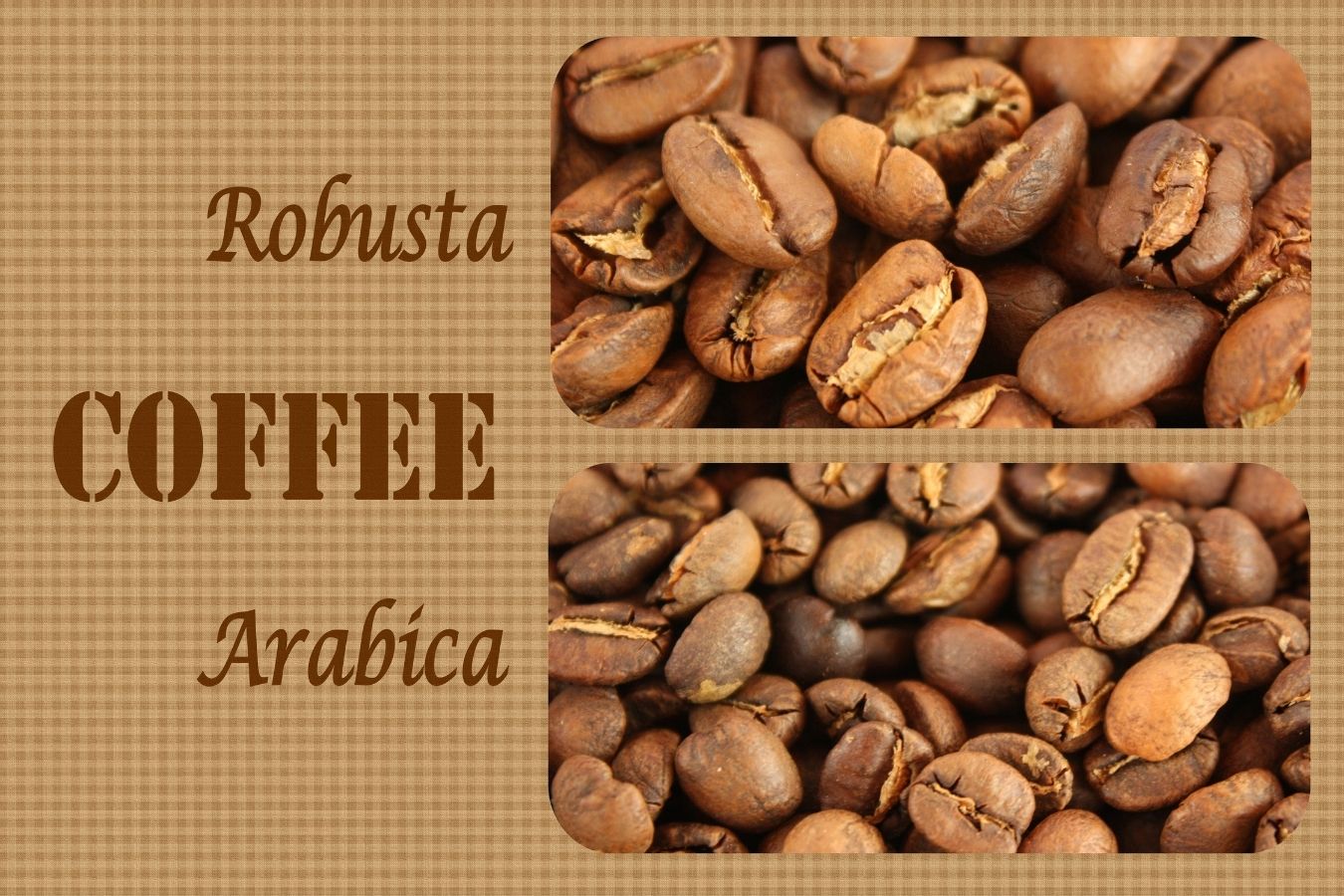
Robusta also has a higher concentration of the bitter compound caffeine, which also adds somewhat to the levels of bitterness.
Robusta produces a lot more crema (the foam you see on the top of your espresso). To a lot of people, high quantities of crema is a sign of delicious coffee, and crema is even shown-off in advertisements as something desirable.
However, the crema is extremely bitter and isn’t favoured much in the specialty coffee industry. Try scooping the crema off the top of your espresso and tasting it. You won’t want to do it again in a hurry. Look for 100% arabica coffee next time you buy a packet. Arabica is a lot more gentle in flavour.
